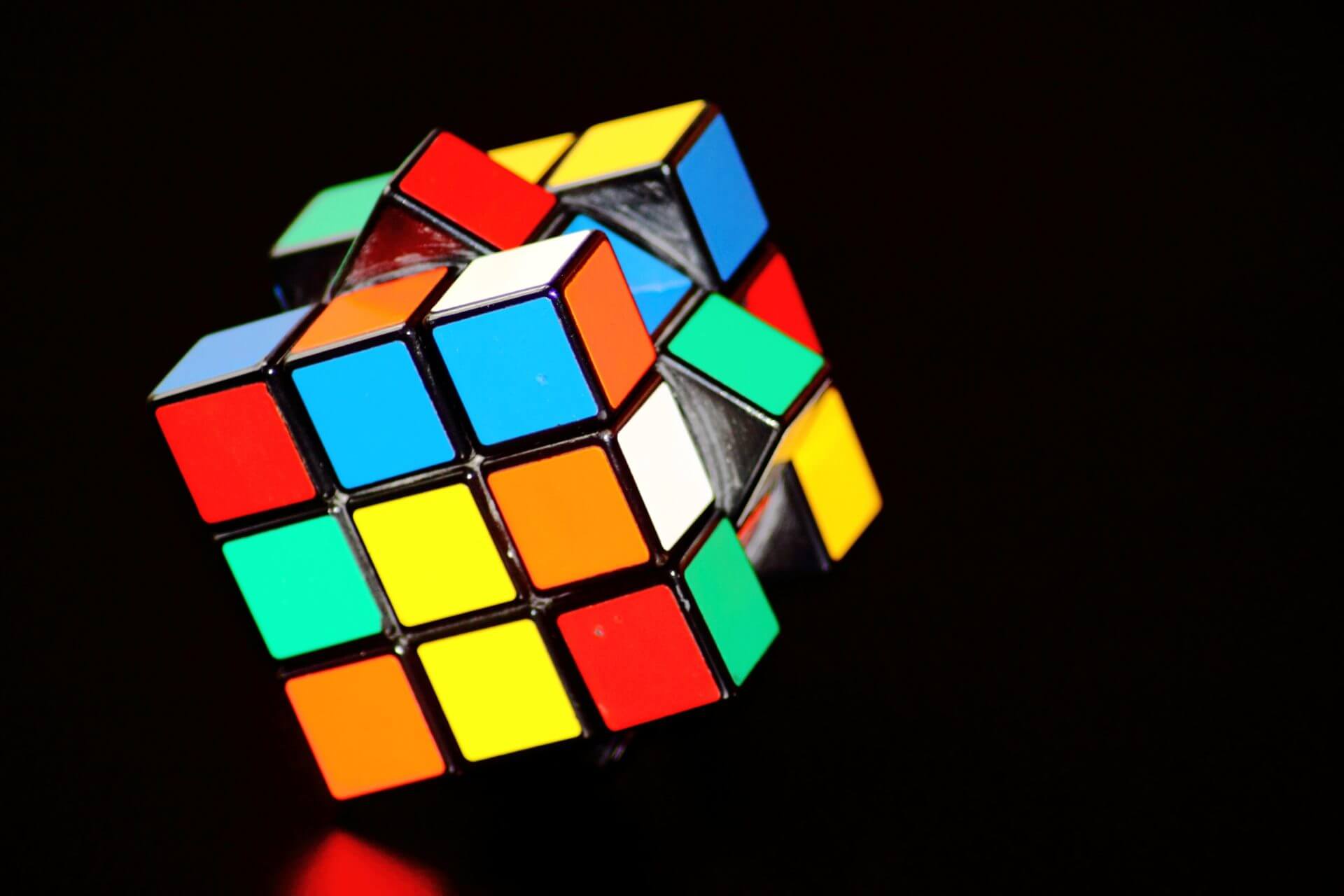Artificial Intelligence, Machine Learning, Privacy/FATE
About
Researchers in artificial intelligence (AI) seek to understand and develop machines with human-level intelligence by exploring the academic and real-world challenges surrounding AI.
At USC’s Department of Computer Science, we are pioneering breakthroughs in a full spectrum of topics related to AI, including machine learning, computer vision and image processing, human-robot interaction, speech and language analysis, information extraction and privacy-protection.
Our researchers are working in areas where artificial intelligence has been under study for decades—like language—and where the tools are just starting to make inroads—such as efforts to combat human trafficking, diagnose fetal alcohol syndrome, and prevent terrorist attacks using limited resources.
We understand that the long-term goal of building intelligent machines relies on collaboration across many fields. That’s why we also work closely with researchers across application domains, such as health care, social work and linguistics.
Labs
Affective Computing Group
Automatic Coordination of Teams (ACT) Lab
Center for Autonomy and AI
Center on Knowledge Graphs
Cognitive Architecture
Cognitive Learning for Vision and Robotics Lab
Collaboratory for Algorithmic Techniques and Artifical Intelligence (CATAI)
Computational Linguistics
Computational Neuroscience Lab (iLab)
Computational Social Science Laboratory
IRIS Computer Vision Lab (CV-Lab)
Data, Interpretability, Language and Learning (DILL) Lab
Data Science Lab
Database Lab (Dblab)
Haptics Robotics and Virtual
ICT Natural Language Dialogue Group
IDM Artificial Intelligence Laboratory
Information Laboratory (InfoLab)
Intelligence and Knowledge Discovery (INK) Research Lab
Integrated Media Systems Center (IMSC)
Interaction Lab
Interactive and Collaborative Autonomous Robotic Systems (ICAROS) Lab
Interactive Knowledge Capture
Machine Learning and Data Mining Lab (Melody-Lab)
Polymorphic Robotics Lab
Privacy Research Lab
Robotics and Autonomous Systems Center (RASC)
Robotic Embedded Systems Lab
Robotics Research Lab
Semantic Information Research
Speech Analysis and Interpretation Lab (SAIL)
USC Brain project
USC Center for Artificial Intelligence in Society
USC Center for Autonomy and Artificial Intelligence
Faculty
Aleksandra Korolova
Andrew Gordon
Aram Galstyan
Barath Raghavan
Bill Swartout
Bistra Dilkina
Craig Knoblock
Cyrus Shahabi
David Kempe
David Pynadath
David Traum
Fred Morstatter
Gale Lucas
Gaurav Sukhatme
Greg Ver Steeg
Haipeng Luo
Heather Culbertson
Jay Pujara
Jesse Thomason
Jiapeng Zhang
John Heidemann
Jonathan Gratch
Jonathan May
Jose Luis Ambite
Jyotirmoy Deshmukh
Kallirroi Georgila
Kristina Lerman
Laurent Itti
Leana Golubchik
Maja Matarić
Michael Zyda
Mohammad Soleymani
Muhammad Naveed
Mukund Raghothaman
Ning Wang
Paul Rosenbloom (Emeritus)
Pedro Szekely
Ram Nevatia
Robin Jia
Satish Thittamaranahalli
Saty Raghavachary
Shaddin Dughmi
Shang-Hua Teng
Srivatsan Ravi
Stefanos Nikolaidis
Sven Koenig
Swabha Swayamdipta
Tatyana Ryutov
Ulrich Neumann
Victor Adamchik
Weihang Wang
Wei-Min Shen
Wensheng Wu
Xiang Ren
Yan Liu
Yolanda Gil
Theory and Computation
About
USC has a strong and active background in modern theoretical computer science, with research spanning a broad range of topics. Areas of particular interest include the theory of algorithms and optimization, graph theory, scalable algorithms, theory of machine learning, computational geometry, complex analysis, computational complexity, algorithmic number theory and cryptography.
Our researchers in this area are particularly motivated by bridging the gap between theory and practice, such as non-blockchain digital currencies, social network analysis, smoothed analysis, bilingual learning and post-quantum cryptography.
In addition, we have many strong connections to other fields, including economics and game theory, pure mathematics, applied mathematics and scientific computing, network science, sociology, as well as evolution of concepts, ideas and organisms.
Systems, Databases, Software Engineering, Cyber-Physical Systems, Security
About
The demands on modern computing systems are increasingly complex, from small embedded systems in phones, laptops and wearables, to large-scale cloud computing and high-performance networks.
Systems, databases and software engineering research at USC aims to develop innovative hardware and software across the computing spectrum for existing technologies and to support future power-efficient, sustainable and secure computer systems.
From smart cities and intelligent transportation systems to personalized medicine, next-generation computer systems will require new, innovative and visionary approaches to hardware, wired and wireless communication.
At USC, researchers investigate various issues in the design and analysis of infrastructures for large networks. We focus on fundamental aspects of information acquisition, processing, security, privacy, storage, and communication.
Our research interests include crowd-sensing, program analysis, privacy-preserving systems, network design and management, software-defined networking, cloud computing, internet measurement, software verification and synthesis, advanced 5G wireless networks and data center design.
Labs
ANT (The Analysis of Network Traffic Lab)
Autonomous Networks Research Group
Center for Computer Systems Security
Center for Systems and Software Engineering (CSSE)
Center on Knowledge Graphs
Collaboratory for Advanced Computing and Simulations (CACS)
FPGA/Parallel Computing Group
Information Laboratory / USC
Integrated Media Systems Center (IMSC)
Networked Systems Lab
Quantitative Evaluation & Design Lab (QED)
Safe Autonomy and Intelligent Distributed Systems (SAIDS) Lab
STEEL Security Research Lab
The Postel Center
USC Database Lab
Faculty
Andrew Goodney
Barath Raghavan
Bill Cheng
Bill Swartout
Chao Wang
Claire Bono
Clifford Neuman
Craig Knoblock
Cyrus Shahabi
Ellis Horowitz
Ewa Deelman
Fred Morstatter
Jelena Mirkovic
Jeffrey Miller
John Heidemann
Jose Luis Ambite
Jyotirmoy Deshmukh
Lars Lindemann
Leana Golubchik
Mark Redekopp
Mukund Raghothaman
Nenad Medvidovic
Pedro Szekely
Ramesh Govindan
Saty Raghavachary
Shahram Ghandeharizadeh
Shawn Shamsian
Srivatsan Ravi
Tatyana Ryutov
Weihang Wang
Wensheng Wu
William G.J. Halfond
Xiang Ren
Computer Vision, Robotics, Graphics and HCI
About
At USC, the areas of computer vision, robotics and graphics represent the interface between computers and the rest of the world.
Robotics at USC focuses on developing effective, robust, human-centric, and scalable robotic systems. In this area, our expertise ranges from socially assistive robotic and novel haptics technology for virtual touch to complex human-robot interaction and multi-robot systems.
In computer vision and graphics, our researchers bridge physical and digital worlds with powerful recognition and analysis algorithms, as well as immersive technologies, such as augmented and virtual reality.
In computer vision, our strengths include object detection and recognition, face identification, activity recognition, video retrieval and integrating computer vision with natural language queries.
Our graphics researchers focus on interactive techniques and the simulation and synthesis of multimedia, 3D content and virtual worlds, including image-based modeling and reconstruction, shape analysis, 3D face processing, human digitization, efficient physics simulation, image and video-based rendering techniques.
Last but not least, USC Games, a collaboration between the Department of Computer Science and the School of Cinematics Arts, is recognized as one of North America’s top game design programs, according to Princeton Review.
Labs
Cognitive Learning for Vision and Robotics Lab
Computer Graphics Group
Computer Graphics, Animation and Simulation Laboratory
Computer Graphics and Immersive Technologies (CGIT)
Geometry and Graphics Group
Haptics Robotics and Virtual Interaction (HaRVI) Lab
Autonomous Robotic Systems (ICAROS) Lab
Interaction Lab
Polymorphic Robotics Lab
Robotics and Autonomous Systems Center (RASC)
Robotic Embedded Systems Lab
Safe Autonomy and Intelligent Distributed Systems (SAIDS) Lab
USC Geometric Capture Group
Vision & Graphics Lab at USC ICT
Faculty
Andrew Goodney
David Pynadath
David Traum
Gale Lucas
Gaurav Sukhatme
Heather Culbertson
Jernej Barbic
Jesse Thomason
Jonathan Gratch
Kallirroi Georgila
Lars Lindemann
Laurent Itti
Maja Mataric
Mark Redekopp
Michael Zyda
Mohammad Soleymani
Ning Wang
Oded Stein
Paul Rosenbloom
Ram Nevatia
Satish Thittamaranahalli
Saty Raghavachary
Stefanos Nikolaidis
Sven Koenig
Ulrich Neumann
Wein-Min Shen
Yolanda Gil
Published on August 2nd, 2019
Last updated on November 17th, 2023





